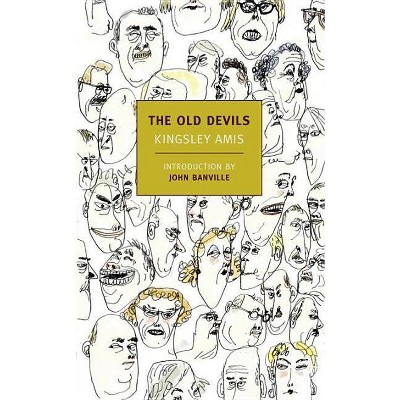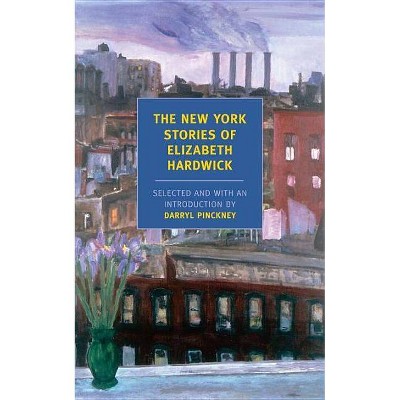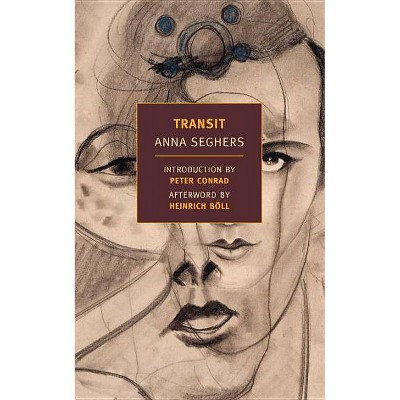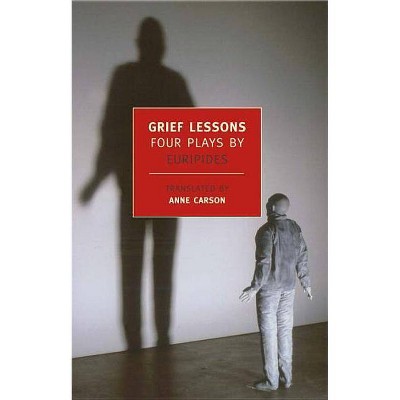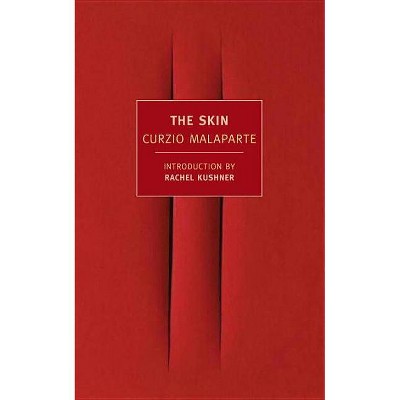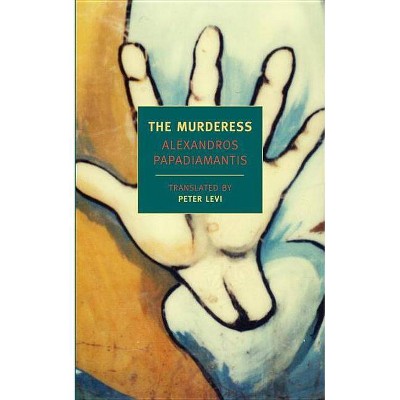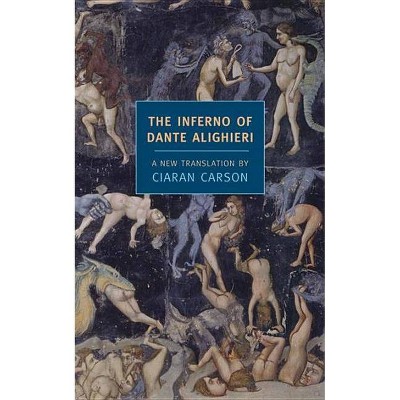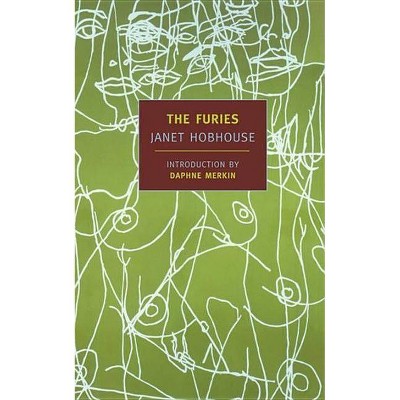The Alteration - (New York Review Books (Paperback)) by Kingsley Amis (Paperback)
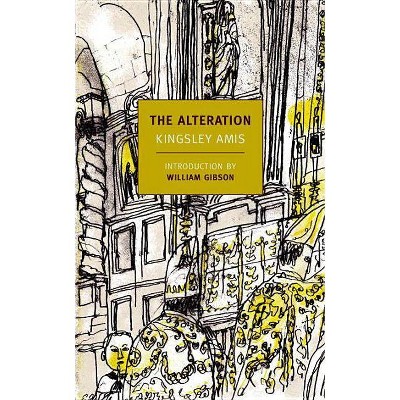
Similar Products
Products of same category from the store
AllProduct info
<p/><br></br><p><b> About the Book </b></p></br></br>"In Kingsley Amis's virtuoso foray into alternate history, it is 1976 but the modern world is a medieval relic, frozen in intellectual and spiritual time ever since Martin Luther was promoted to pope back in the sixteenth century. Stephen the Third, the king of England, has just died, and Mass (Mozart's second requiem) is about to be sung to lay him to rest. In the choir is our hero, Hubert Anvil, an extremely ordinary ten-year-old boy with a faultless voice. In the audience is a select group of experts whose job is to determine whether that faultless voice should be preserved by performing a certain operation. After all, any sacrifice is worth it for the perfection of art. How Hubert realizes what lies in store for him and how he deals with the whirlpool of piety, menace, terror, and passion that he soon finds himself in are the subject of a classic piece of counterfactual fiction to equal Philip K. Dick's The Man in the High Castle. The Alteration won the John W. Campbell Memorial Award for best science-fiction novel in 1976"--<p/><br></br><p><b> Book Synopsis </b></p></br></br><b><b>BOOKER PRIZE-WINNING AUTHOR <p/>Set in a world in which the Reformation failed, this award-winning science fiction tale is "one of the best . . . alternate-worlds novels in existence" (Philip K. Dick)</b><br></b><br>In Kingsley Amis's virtuoso foray into virtual history it is 1976, but the modern world is a medieval relic, frozen in intellectual and spiritual time ever since Martin Luther was promoted to pope back in the sixteenth century. Stephen the Third, the king of England, has just died, and Mass (Mozart's second requiem) is about to be sung to lay him to rest. In the choir is our hero, Hubert Anvil, an extremely ordinary ten-year-old boy with a faultless voice. In the audience is a select group of experts whose job is to determine whether that faultless voice should be preserved by performing a certain operation. Art, after all, is worth any sacrifice. <p/> How Hubert realizes what lies in store for him and how he deals with the whirlpool of piety, menace, terror, and passion that he soon finds himself in are the subject of a classic piece of counterfactual fiction equal to Philip K. Dick's <i>The Man in the High Castle</i>. <p/> <i>The Alteration</i> won the John W. Campbell Memorial Award for best science-fiction novel in 1976.<p/><br></br><p><b> Review Quotes </b></p></br></br><br>"Buoyantly inventive from its ground-plan to its remotest pinnacles and twirly bits, Kingsley Amis's new novel has almost nothing expectable about it, except that it is a study of tyranny." --John Carey, <i>New Statesman</i> <p/> One of the best--possibly the best--alternate-worlds novels in existence. --Philip K. Dick <p/>A masterpiece of its kind." --William Gibson, <i>The New York Times</i> <p/> "<i>The Green Man</i> and <i>The Alteration</i> will retain their important places in the history of supernatural fiction and science fiction." --Michael Dirda <p/> "In one of his funniest novels, <i>The Alteration</i>, Kingsley Amis imagined a counterfactual world in which the Reformation had failed. Martin Luther had not plunged northern Europe into religious revolt, but instead became Pope Germanicus I. Prince Arthur of England did not die, so his odious brother Henry never became king. Henry's malcontent Protestant followers, after an abortive rebellion, were banished to New England, where they eventually invented free trade, electricity and personal hygiene. So Europe in the 1960s groaned under a papistical Hapsburg tyranny. Harold Wilson was pope, dispensing tea in the Vatican ('Shall we be mother?'), and papal scouts combed English cathedrals for likely singing boys who, after suitable surgery ('The Alteration'), became castrati in the Sistine Chapel choir." --Eamon Duffy, <i>Sunday Times</i> (UK) <p/> "Amis, not content with writing scholarly treatments of the subject, produced a historical/futurological novel, <i>The Alteration . . . </i>I might add that the subject of sex in this work is introduced in the most radical and subversive way, though without the smallest hint of the pornographic." --Christopher Hitchens, <i>The Atlantic Monthly</i><br><p/><br></br><p><b> About the Author </b></p></br></br>Kingsley Amis (1922-1995) was a popular and prolific British novelist, poet, and critic, widely regarded as one of the greatest satirical writers of the twentieth century. Born in suburban South London, the only child of a clerk in the office of the mustard-maker Colman's, he went to the City of London School on the Thames before winning an English scholarship to St. John's College, Oxford, where he began a lifelong friendship with fellow student Philip Larkin. Following service in the British Army's Royal Corps of Signals during World War II, he completed his degree and joined the faculty at the University College of Swansea in Wales. <i>Lucky Jim</i>, his first novel, appeared in 1954 to great acclaim and won a Somerset Maugham Award. Amis spent a year as a visiting fellow in the creative writing department of Princeton University and in 1961 became a fellow at Peterhouse College, Cambridge, but resigned the position two years later, lamenting the incompatibility of writing and teaching ("I found myself fit for nothing much more exacting than playing the gramophone after three supervisions a day"). Ultimately he published twenty-four novels, including science fiction and a James Bond sequel; more than a dozen collections of poetry, short stories, and literary criticism; restaurant reviews and three books about drinking; political pamphlets and a memoir; and more. Amis received the Booker Prize for his novel <i>The Old Devils</i> in 1986 and was knighted by Queen Elizabeth II in 1990. He had three children, among them the novelist Martin Amis, with his first wife, Hilary Anne Bardwell, from whom he was divorced in 1965. After his second, eighteen-year marriage to the novelist Elizabeth Jane Howard ended in 1983, he lived in a London house with his first wife and her third husband. <p/>William Gibson is the author of many novels, including <i>Neuromancer</i> and <i>Pattern Recognition</i>. His collected essays and articles have been published under the title <i>Distrust That Particular Flavor</i>.
Price History
Price Archive shows prices from various stores, lets you see history and find the cheapest. There is no actual sale on the website. For all support, inquiry and suggestion messages communication@pricearchive.us
